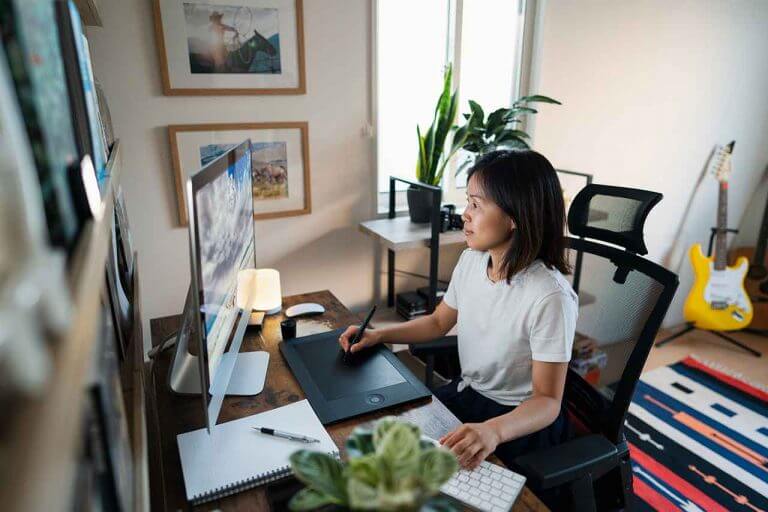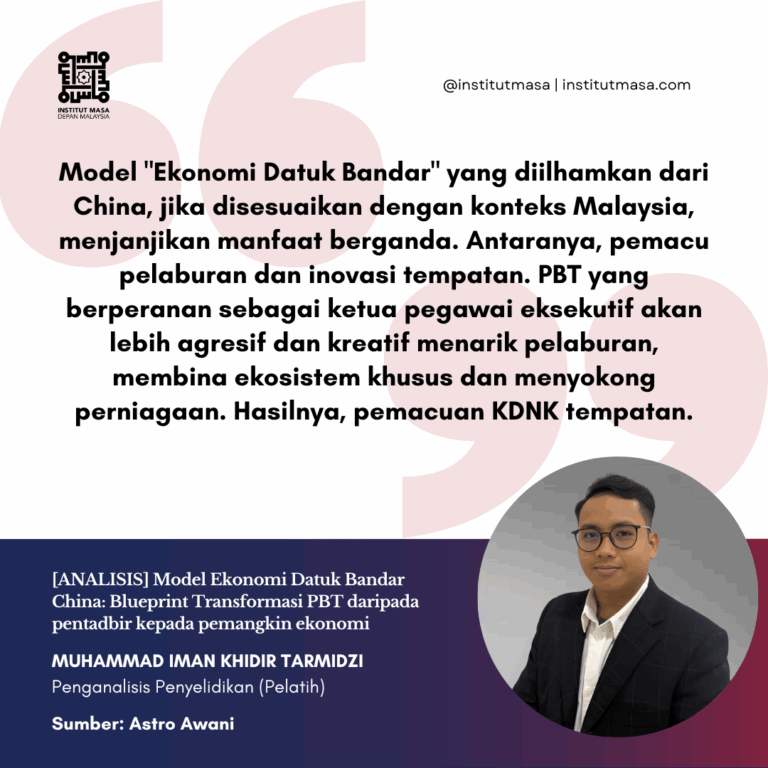Source of Image : iStock – https://www.istockphoto.com/photo/female-designer-working-from-her-home-office-gm1220176747-357187267
By Muhammad ‘Aamil Azhar, Research Analyst, Institut Masa Depan Malaysia
01/02/2021
Students across Malaysia, except those financially and infrastructurally fortunate, have been burdened by the nearly year-long study-from-home order. The data regarding ownership of electronic devices severely overestimate the capability of families in facing the problem of remote education.
It is a scary future for most Malaysian families right now. They are and will be economically vulnerable, and so will their children who now belong to the “lost generation”. Students of this very perilous period will lose out from education due to high prices of e-learning devices and data, screen fatigue, household distractions, and stress.
The many hurdles to digital education have made Malaysians voice their hope of seeing “TV Pendidikan” being used as the main medium of teaching and learning. As of its current state, TV Pendidikan is not being optimally used. Malaysia could well learn from other countries, even those which are “less developed” than us such as Ethiopia and Ghana from their storied experience at conducting televised education.
In ensuring that the effort and investment made for the education television are maximized, Institut Masa Depan Malaysia (Institut MASA), a think tank established to propagate policy ideas and analysis guided by shared prosperity values, are called to share some suggestions to increase the efficiency of TV Pendidikan. Our five (5) main suggestions are as follows;
1) Prepare study notes and exercises
First, even before any educational content is produced, the Ministry of Education (MOE) must arrange for study notes as well as exercises to be produced and distributed before, so it could be used in conjunction with the televised content. These notes and exercises should be tailored for specific subjects and according to the schooling year, printed at an industrial scale, and distributed free of charge through schools or by mail for greater effect. Printed material will cut down writing time for the students, ensure their focus on the syllabus, and would be a great equalizer in the quality of education for all students.
2) Expand the number of channels catering to education
Instead of airing only on TV Okey and NTV7, it must either be expanded to other available channels or there must be an effort to create new channels specifically for television education.
3) Create a clear and workable broadcasting schedule
A very good arrangement on the schedule is needed to ensure that no students are left behind. For example, classes for Form 1-3 students should be set in the morning on 3 channels. And classes for Form 4 and 5 students to be held in the afternoon on 2 different channels. Whilst classes for students in Standard 1-3 and 4-6 to be held on alternate days. This would ensure students have time to read through their study notes and perform their homework as well as reduce screen fatigue and boredom. The broadcast shall be repeated for ease of scheduling particularly for families with children of different age.
4) Optimizing the use of radio broadcast
We must also look at more accessible and affordable technology like radio. Educational radio broadcasts have many advantages. New radio channels are not only cheaper and easier to set up, require no visual preparation and their broadcasts are able to reach more remote distances compared to cellular or TV signals. The cost of buying a radio is also significantly cheaper than buying a TV, and those who own older makes of mobile phones could also use their phones as FM receivers.
5) Empowering the teachers to monitor the progress of the students, effectively
The “new norm” of the education system is not only challenging on the students and parents but also affecting the teachers, who we believe would want to contribute at their best, but restricted by the situation. We believe that MOE should produce a standardized guideline for the teachers, in monitoring the progress of the students, as well as to prepare a standardized response for them to work on, in maximizing the output and outcome of the education program during this pandemic.
With the five (5) key suggestions proposed herein, Institut MASA strongly urges the government to take immediate action in strengthening the content of TV Pendidikan, the delivery, and the monitoring process, as well as to explore the use of radio broadcasting to reach out to as many students as possible. Immediate and firm action by the government in this will help to reduce the impact of the lost year of learning on the future of our young generation.




